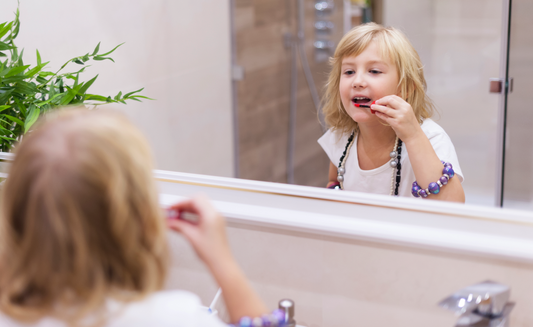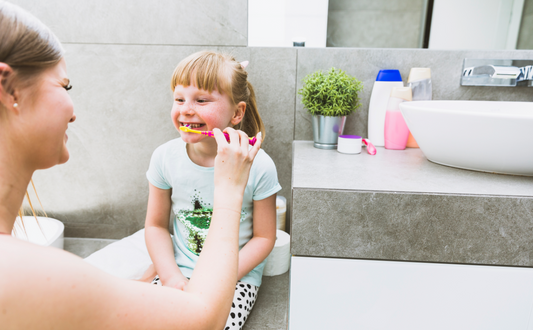As parents, one of the most important things we can teach our children is how to self-regulate. Self-regulation refers to the ability to manage one's thoughts, feelings, and behavior in a way that is appropriate for the situation (and let's be honest, it's a skill a lot of us parents are still learning, especially when our little ones push our buttons!) But it's worth persisting trying to instil this skill in our children, as it helps them develop self-control, emotional intelligence, and resilience – which will serve them in the classroom to the playground to later on in life.
Here are some tips on how to help your child self-regulate:
-
Model self-regulation: Monkey see, monkey do. Children learn best by watching and imitating their parents. So it's important to model self-regulation yourself. Easier said than done, right? Try practicing breathwork, taking some much-needed time for yourself, and thinking before reacting. If you are able to manage your emotions in a healthy way, your child is more likely to do the same.
-
Help your child identify their emotions: Children often struggle to identify and label their emotions. By helping your child identify their emotions, you can teach them to understand and manage them better. You can start by asking your child how they are feeling – perhaps asking them to draw a picture or point to a print-out – encouraging them to express themselves. It's important to remind your child that although their emotions may feel overwhelming and all-encompassing, they are not permanent and will pass. Try comparing them to clouds in the sky – just like clouds come and go, their emotions are fleeting and will eventually pass.
-
Teach your child calming techniques: It's never too early to start adding calming techniques to your child's mental health arsenal! When your child is feeling overwhelmed or upset, try encouraging them to take deep breaths, go for a walk, or engage in a relaxing activity such as drawing or listening to music.
-
Try sensory toys & tools: Sensory toys and equipment provide children with different sensory experiences that can help them regulate their emotions and behavior. Some that might help include fidget toys, chewelry, or a sensory swing to provide a safe, comforting space. Activities that require patience can also help by encouraging mindfulness and slowing down, such as this colour sorting toy or rainbow puzzle board.
-
Practice empathy: Empathy is the ability to understand and share the feelings of others. By practicing empathy, you can help your child develop a deeper understanding of their own emotions and the emotions of others. This can help them develop stronger relationships and better social skills.
Remember, self-regulation takes time and practice, so let's be patient and consistent in our efforts to help our kids develop this skill. Together, we can help our little ones succeed in all areas of their life – from school to friendships and beyond.
PS. Does your child struggle with sensory overload? Read our tips on how to reduce sensory overload for sensitive kids.




